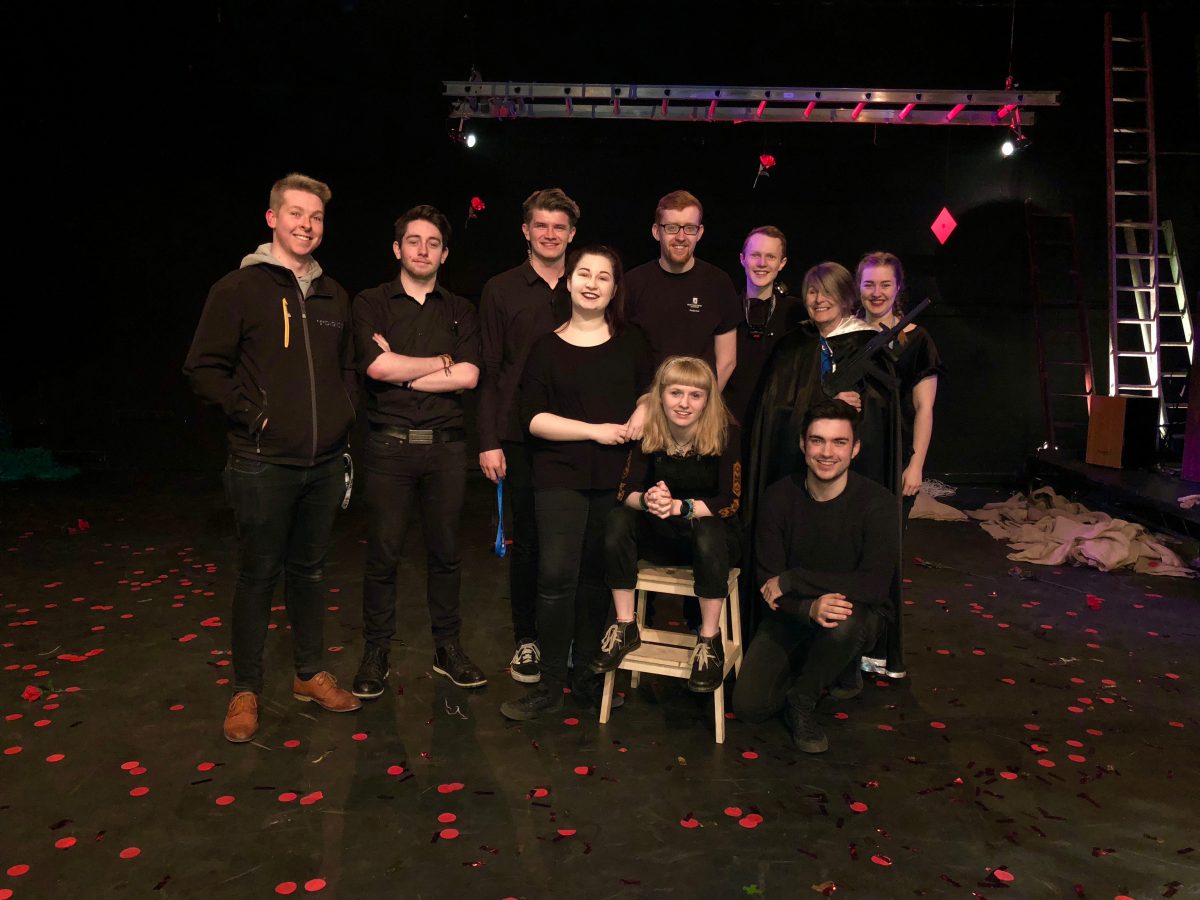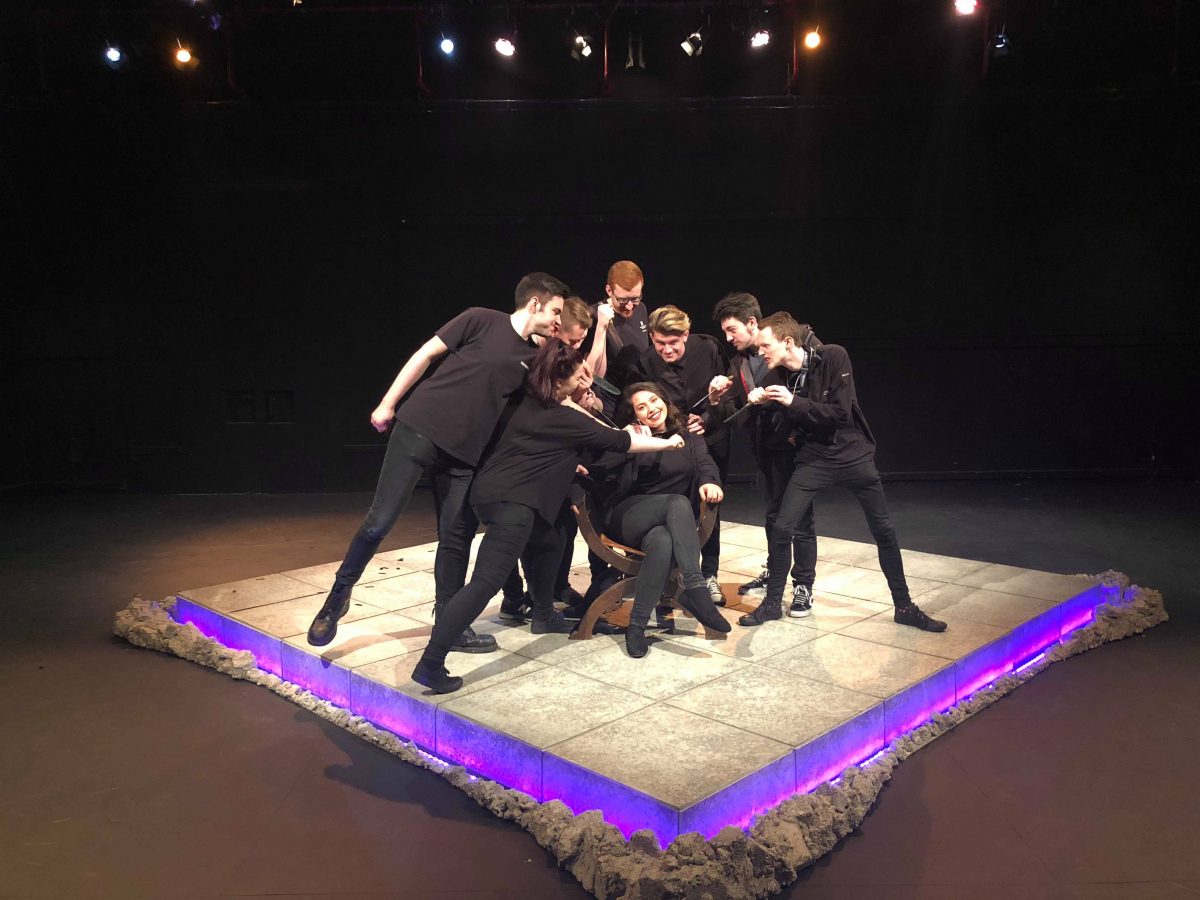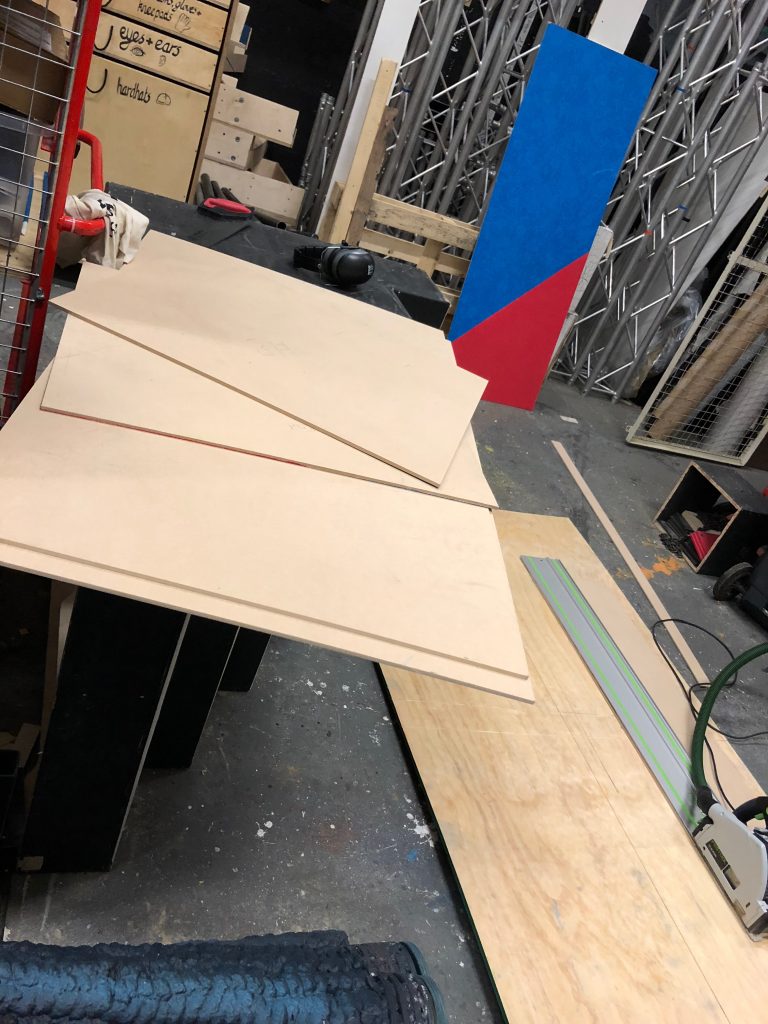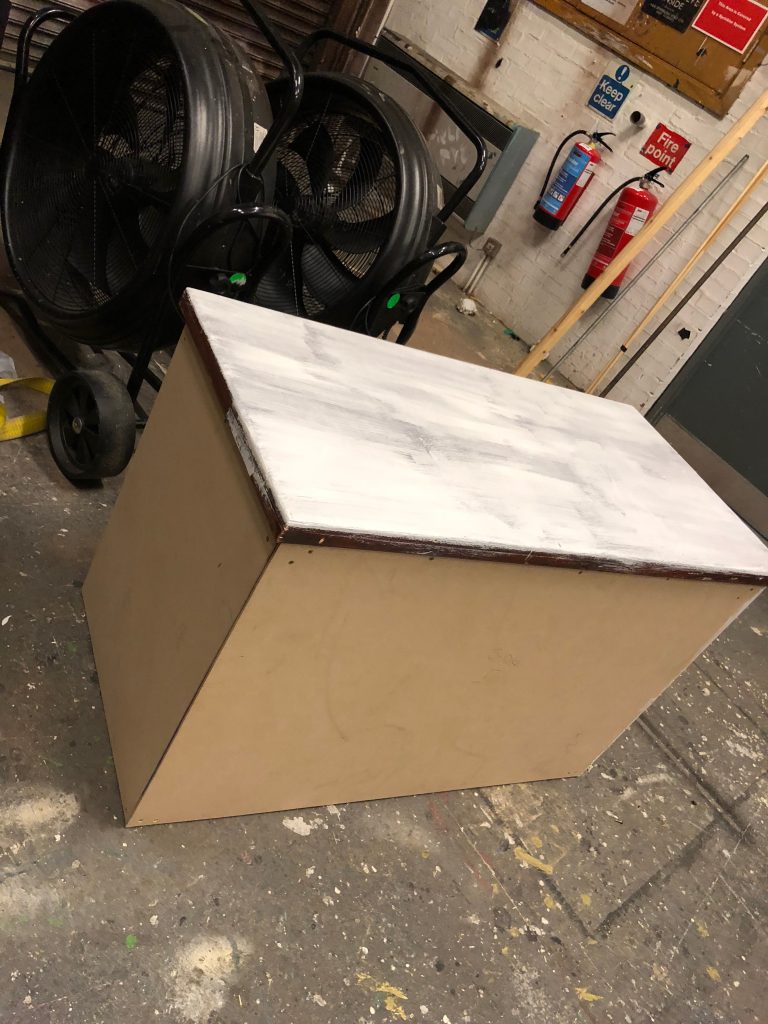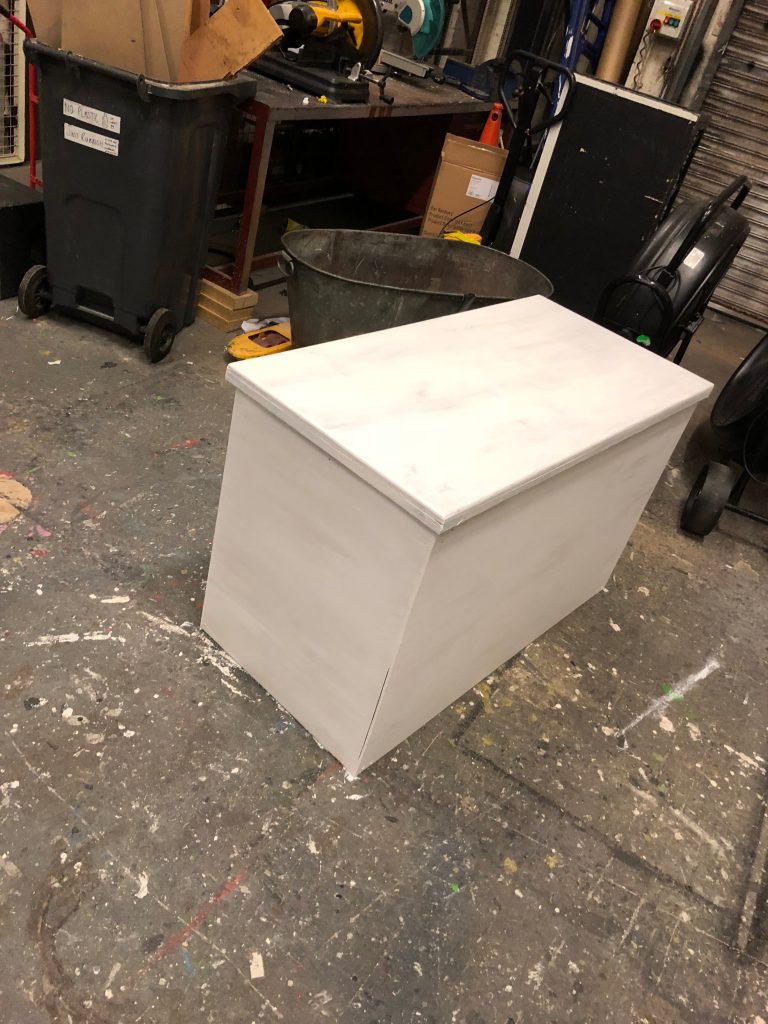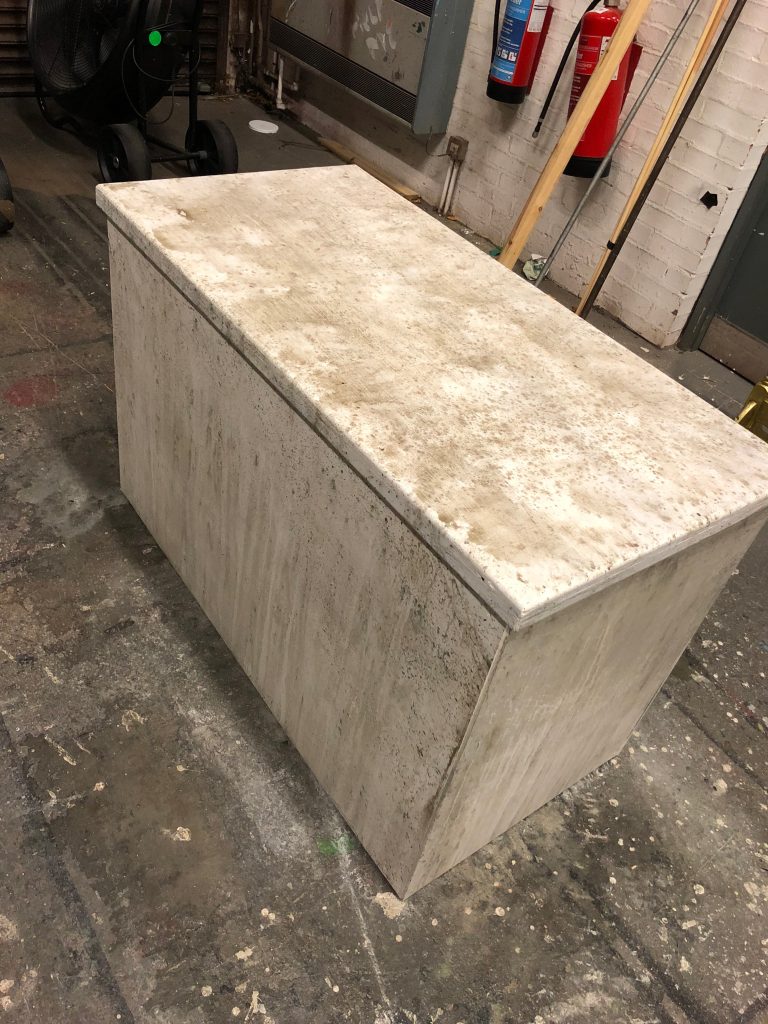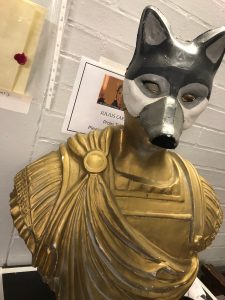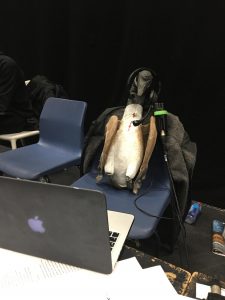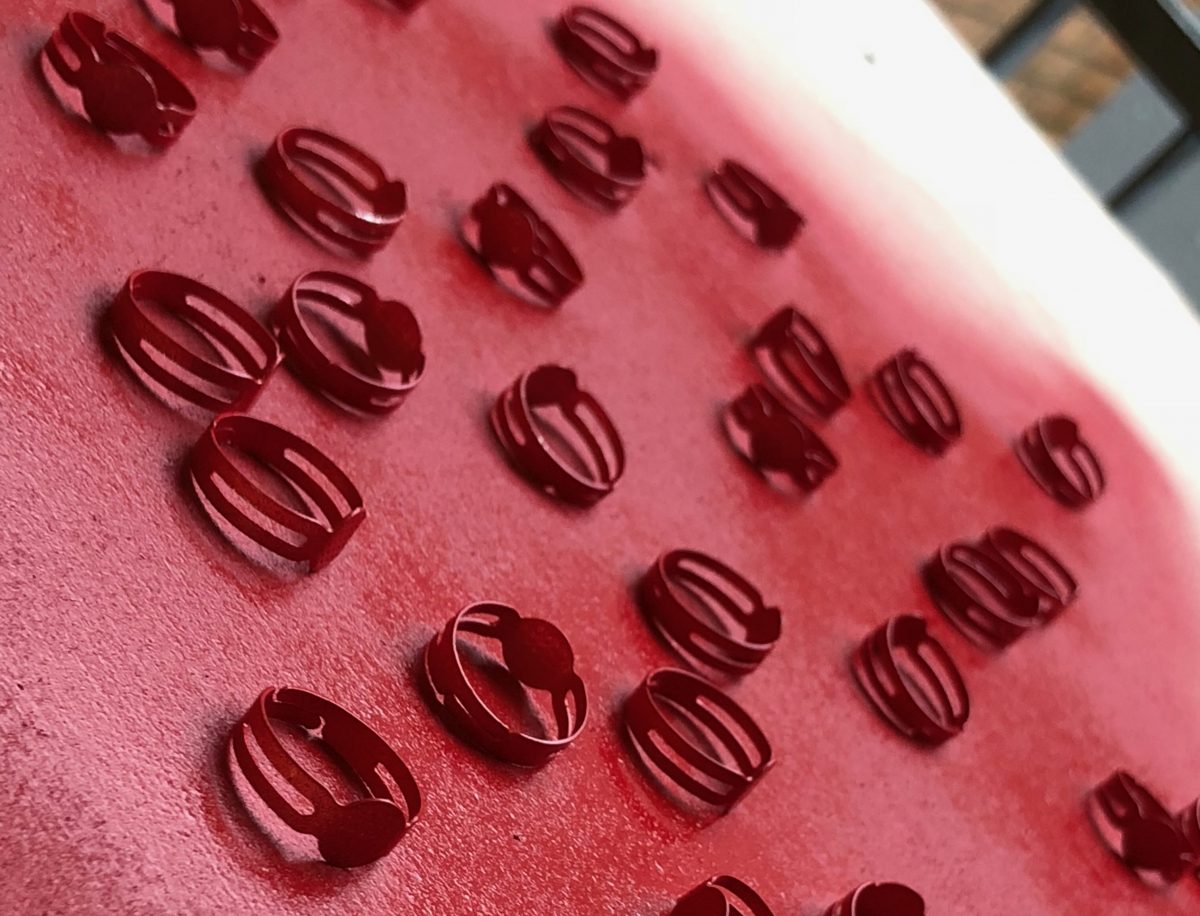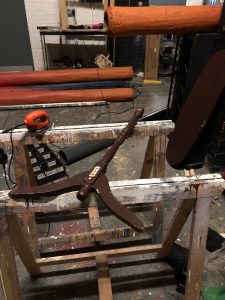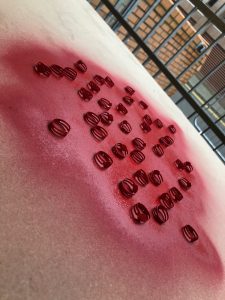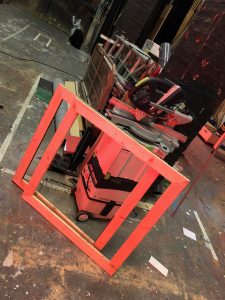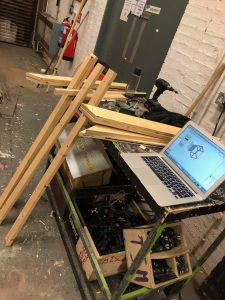And so we moved onto Twelfth Night. Due to the turnaround time between the shows being almost unachievable tight – and this, the larger of the two shows, having half the tech time of the prior – It was decided that I would work with Daryl and Jak in the venue to rig everything until the props and cages came out of the rehearsal room and had to be installed into the venue. This led to a really enjoyable Monday, the sunny day outside mirroring the happiness and enthusiasm of all the technicians in the venue – even Steve; I know! Between us, we got the ‘Box of Death’ in the air, with the mirror ball snuggly fitted inside it. This was a really heartening experience, showing that accurate planning can actually pay off, and after installing some pulleys and shimmying some knots it could be controlled from the side gantry with ease. I then jumped on to plugging up Catwalk 3, providing the third body the LX department needed to have one on each walkway and, once this was done, assisted in rigging the drop-down bars, hung lamps on them and plugged up with the cable thrown down to me.
The ‘Box of Death’ Actually Worked
And then came the rehearsal room strike. Tuesday was always going to be a challenging day. Having had my last experience of working with Riona not necessarily end very positively – the strike planning meeting turning into an over-running and frantic van load session, leaving our PLX on the verge of tears after getting hit by ladders thrown at him during what could only be described as a tantrum – I wouldn’t say I was necessarily looking forward to being back under her command. However, keeping an open mind as I’d promised myself I’d do, I loaded the van with the Caesar returns and headed up to Spiers to meet it after it had unloaded at NTS and the Workshop. Upon arrival in the room, I discovered that Poppy – our DSM – had gone on her one break of the day, having been in from nine and it now being five, and so I was left to single-handedly cart all the cages and props from the room to the doors we would load the van from. The start of a chest infection didn’t make this job easier, and it would have been nice to have had extra hands – though I later had it explained to me in detail why I was more than able to do this alone when it required both the SM and an ASM to white tape two props tables in Renfrew at the same time. However, upon Poppy’s immediate return when she realised I was alone, and after the van had been loaded, I went back down to the main building and Poppy and I took a full dinner break – a rarity which we were forced into by an angry Production Manager who was more than knowledgeable of the fact her entire crew were overworked and under-slept. The set up of the tables and stage was pretty erratic compared to Caesar. It became evident that the SM’s settings lists weren’t entirely accurate, with many duplications, and props left over without a home. When it was suggested that we use the rehearsal room lists prepared by the DSM, this was disregarded- a decision which slowed us down and impacted our ability to be fully prepared for tech.
Due to the number of props which needed altered or fixed, the evening session was spent taking a table each and working left to right fixing those props which were broken and amending those which the director requested be changed. It was very lucky that Andy – our Director – was actually in the venue at this point, as he decided to cut at least two props before tech that hadn’t been sourced and Riona had no knowledge of, despite them appearing in rehearsal notes weeks before. The haphazard nature of the transfer and the erratic nature of how we were forced to do this setup just made me feel unprepared. Having seen this show also only once, I felt as nervous going into this tech as I did the one previously, though the pre-prepared cue list that was given to every ASM, TSM and LX crew member before tech started – however incomplete – did provide a little relief in my ability to get through the tech process. However, it turned out that I would get through a lot less of that process than I would have wished to. The bug that had been going around the cast and technicians eventually fell upon me, heading for my chest and resulting in a cough and dizziness that made it impossible for me to work effectively. With Yvonne covering my shift for the evening, I arrived the next morning feeling better and with notes that were a joy to work from, as they actually provided all the details I needed to transfer them straight into a running list. Before I left sick, however, I was confronted by my Stage Lecturer in the office, who had previously that day had the TSM of the show complain to him about my behaviour. This resulted in a rather forced conversation where, as he did not wish to pick a side in a fight I thought shouldn’t have existed in the first place, I was subjected to being forcibly self-searching on how I may have offended a team member who had never confronted me with his opinions directly. I will hold out that this was the wrong way of doing this. Never had this individual spoken to me about their issue with me, and jumping straight to a higher power to do their fighting on their behalf just led to the situation worsening. Unlike my previous working issue which was sorted at the source, this became blown out of proportion, and led to me having to calm fires that should never have been kindled. The importance of communication and dealing with issues at the source cannot be overstated, and is something that I will hold out is the most important element of professional cooperation.
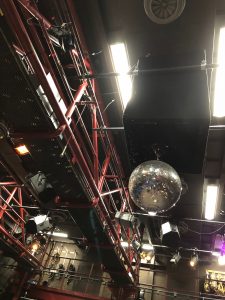
Pretty, Pretty Mirror Ball
Tech passed faster than I thought possible, finishing but an hour before our first dress rehearsal – an open dress for High School kids. I, therefore, ended up running the show like a technician covering a track, rather than one with a real understanding of what he was doing. I stumbled through the cues I knew I had, discovered quickly the ones I didn’t have notes on and stressed through to the end – finishing with a complete running list and a sense of control which had been present from around day two of the Caesar tech. Still stumbling through a combination of three different settings list, the reset which followed was stressful enough as it was, made worse by the fact no one had had a break in the last five or six hours. To then have my HOD cry and run out of the venue because herself and the PM became snappy with each other, and left me to run the room as Jess reset all exterior props tables wasn’t very fair, and I was not in the correct physical capacity to deal with the situation. However, I did. I managed the departments within the room to maximise the time that we had remaining before the next show, compromising the needs of each to reach a happy medium for all. Though my HOD didn’t feel comfortable doing a reset by torchlight this didn’t bother me, and therefore the LX department could have the time they desperately wanted. I’m sad to say that we got more done in the 20 minutes our Stage Manager was absent from the venue than in the 25 which followed, which was filled with stony expressions and having props thrown at me, a fishing net hitting me in the eye. Again – unprofessional. What became more and more apparent as this week passed was, though we were all under pressure and all struggling to cope with the stress that caused, some of us were able to hold it in until we were alone or amongst friends, and some of us let it affect our work. As a HOD I see the importance of adhering to the former, as – no matter how much stress one is under – remaining calm and in control at all times is important to maintain confidence amongst one’s team. If this fails, not only is all authority gone but all trust that you are competent enough to follow through with your job. I’m genuinely sad to say that that was the situation which ended up arising as the show went on.
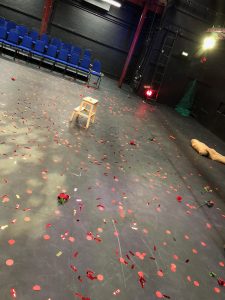
With 3 Kinds of Confetti, Every Reset was a Challenge
But, against all odds, we got through it. Sniffing, coughing, and many cold and flu tablets later, the whole team choked their way into the strike. The first hour was great. Splitting my time between cutting tokens down from the catwalks and de-rigging mirror balls, black boxes, and trapeze bars, everyone developed a good way of working around each other, finally using all that energy that had been pent-up over the last few shows. And then, like all strikes it seems, it stopped. By eleven, the decision had been made to use the van we had hired to do the Tron and Falkirk ladder returns with to take the cages, costume rails, and ladders to Speirs, rather than wait an extra day and load these on Friday. Jess and I headed up the road to make preparations, a task which ended in a futile attempt to convince Simon to actually take the ladders back into Workshop; a conversation we had assumed our TSM would have already had with him, and one which was eventually dealt with by Malki. Just as we unloaded the cages and started putting props back in the store, Riona informed us that they were now going to return the ladders to Falkirk and she ‘didn’t really see a reason why [she’d] come back to Glasgow’. Knowing that, although our strike was nearly over, there was still a lot left to do down the road, this was a puzzling decision but one Jess and I decided that we could live with, and we bid her farewell.
It took us an hour in total to clear out the cages into the store, then on our return to Renfrew – for what we thought would be a lunch break – we found that the office was still full of bits, pieces, and props that hadn’t been cleared out. We, therefore, used what time we had before our returns to NTS – which I had organised earlier that week – gutting the drawers, submitting the receipts we found to Yvonne, and helping Fran with any last things she required before she left. This was also a good time to find out her opinions on each of us, how we had done, and get one-on-one feedback from an external in a way that wasn’t just a few lines written on a piece of paper, which I found very useful.
NTS returns followed and, just as we’d decided to finally take an hour off and watch the Acting Showcase – it now being just after 3pm -, we received an email from Malki berating the fact everyone had abandoned the PLX and Sound Designer in the venue to finish an as-yet incomplete strike. This was a strange email to read as, despite the fact people were aware the SM team would return and help once their strike was done, I had phoned the TSM earlier that morning who had said that by one o’clock there would be no need to return to the venue, as everyone would be finished. In fact, on passing another crew member in the corridor, I was informed that the TSM had gone home as he felt there was nothing else left to do. In spite of all of this we came back, removed all of our personals from the space – along with a guitar that one of the performers had left behind – and finally left for good at half past four, leaving ‘Twelfth Night’ complete a whole day early.
SaveSave
SaveSave



